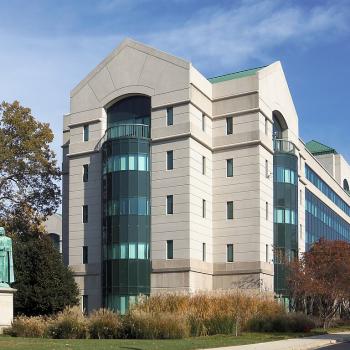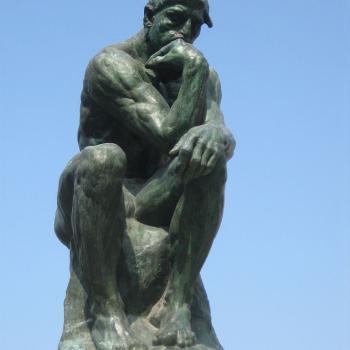
Justice is important. We must desire it. We must yearn it so much, we hunger for it. And just as we cannot live without food, so we find we cannot properly live and be satisfied without justice. So long as we hunger for it, so long as we thirst for it, we find ourselves working for it. We will do what needs to be done to attain it. But, as St. Jerome remarked, once we begin our pursuit for justice, we will find that there is no end to our search for it. Our quest for it must go on forever:
“Blessed are those who hunger and thirst for justice.” It does not suffice for us to want justice, if we do not experience a hunger for justice. Thus from this example we should understand that we are never sufficiently just, but it is always necessary to hunger for works of justice. [1]
If we truly hunger for justice, we will find ourselves constantly reforming ourselves so as to conform to its dictates. But will not stop there. We will work to transform the world, so that the world itself can become more and more just. This means, we must heal the damage done by injustice. If we do not, we will find ourselves promoting injustice through our neglect. This is why those who decry reparations for systematic injustices demonstrate how far they are from the hunger for justice which they should have, for they show us that they think there is a limit to what one should do for the sake of justice. They find themselves satisfied as the way things are, and so, they turn away from God who would have them work for even greater justices, even greater healing in the world. Instead of being blessed with God’s grace, they risk losing everything and entering into a state of woe:
“But woe to you that are rich, for you have received your consolation.
“Woe to you that are full now, for you shall hunger.
“Woe to you that laugh now, for you shall mourn and weep.
“Woe to you, when all men speak well of you, for so their fathers did to the false prophets” (Lk. 6:24-26 RSV).
Those who think there is an end to the pursuit for justice will reap the rewards of their injustice. Those who think they are full shall perish from malnourishment. They no longer feel any hunger from it, not because they are well nourished by it, but because they are starving. They confuse their lack of hunger pains with being well-fed, when in reality, it is the reverse. This is true, not only for us as particular persons, but for the church as a whole. While the church will always be given the graces it needs in order to provide the faithful the sacraments, this does not mean that the church cannot and will not experience woe if and when it no longer hungers for justice. There can be a famine within the church as there is without. This does not mean everyone in the church will suffer from it: for if the church as an institution abandons the pursuit for justice, this does not mean everyone within do so. Those who continue to hunger for it, those who continue to desire justice and do what they can for it, both within and outside the church, will experience the famine differently, as Origen explained:
So, accordingly, should a famine ever occur — let it stay away – for the whole Church, the just does not experience famine, for the intelligent person, engaged in reasoning, training, being concerned with the law of the Lord day and night, conducting himself according to the logos, enjoys spiritual nourishment as did Elijah, according to the story, in a time of famine. [2]
Those who hunger and thirst for justice will continue to be blessed. Their words and deeds will be the light and source of comfort in times of tribulation. They will not bow down and support injustices. They will survive. They will grow strong, and in and through them, God will be at work in the world. They will become rich in the graces of God, riches which they will then share with the world so as to help transform it and make it better. St. Basil understood this, which is why he wrote in a letter:
Do not bow down to power; do not despise poverty; but for those who are governed provide an exactness in your reckonings more exact than any scale. Thus your zeal for justice will be come evident to those who have put their faith in you, and they will admire you beyond all others. Or, even if it does escape their notice, it will not escape the notice of our God, who sets before us great prizes for our good works. [3]
If we become satisfied with what we have, then we will join in with the rest of those who have become satisfied; we will slowly grow hungry and starve. But it will not be instantaneous. As those who go hungry first feel hunger pains before they lose all sense of their hunger, so we will find, once we have abandoned our pursuit for justice, we will feel the pains of our inaction, and by it, we will be encouraged once again to pursue justice. Only if we ignore those pains, will we go into starvation mode and suffer without realizing our spiritual malnourishment.
We must not bow down and conform to those in power when those in power no longer thirst for justice. We must not look down upon the poor and needy, but rather, we must lift them up, knowing that involuntary poverty itself is a demonstration of injustice in the world. This is why so many willingly join in with those who are in such poverty, divesting themselves of their own wealth; they do this in order to make sure that their riches do not become an idol which turns them away from the pursuit of justice expected of them. Joining in with those in need, experiencing the hardships which they experience, of course, is not enough. We must listen to them. We must make sure their needs, not our own, are central. We must not push ourselves in front of them as if we are their saviors. We must not think, if we voluntarily join in with them, our experience is exactly like theirs; there is a big difference between voluntary and involuntary poverty, because voluntary poverty can be good if it is done as an act of justice, while involuntary poverty is never good as it is a demonstration of the injustice which must be overcome. This is why, once again, if we do some good, such as join in with those who are impoverished, we must not use that to think we have ended our pursuit for justice, but rather we should only see it as the beginning of our own journey. Being in solidarity with those who experience injustice should only help us make sure we do not become satisfied with what limited justice we have achieved. What is important is, as was said at the beginning, is that we hunger for justice, and through that hunger, work for justice. So long as we hunger for it, graces will come to us to help us grow in justice, and through those graces, we will find the blessings of Jesus come to fruition.
[1] St. Jerome, Commentary on Matthew. Trans. Thomas P. Scheck (Washington, DC: CUA Press, 2008), 76.
[2] Origen, Homilies on the Psalms: Codex Monacensis Graecus 314. Trans. Joseph W. Trigg (Washington, DC: CUA Press, 2020), 115 [Homily 3 on Psalm 36].
[3] St. Basil, “Letter 299” in Saint Basil: Letter. Volume 2 (186-368). Trans. Agnes Clare Way, CDP (New York: Fathers of the Church, 1955), 290-1.
Stay in touch! Like A Little Bit of Nothing on Facebook.
If you liked what you read, please consider sharing it with your friends and family!

















